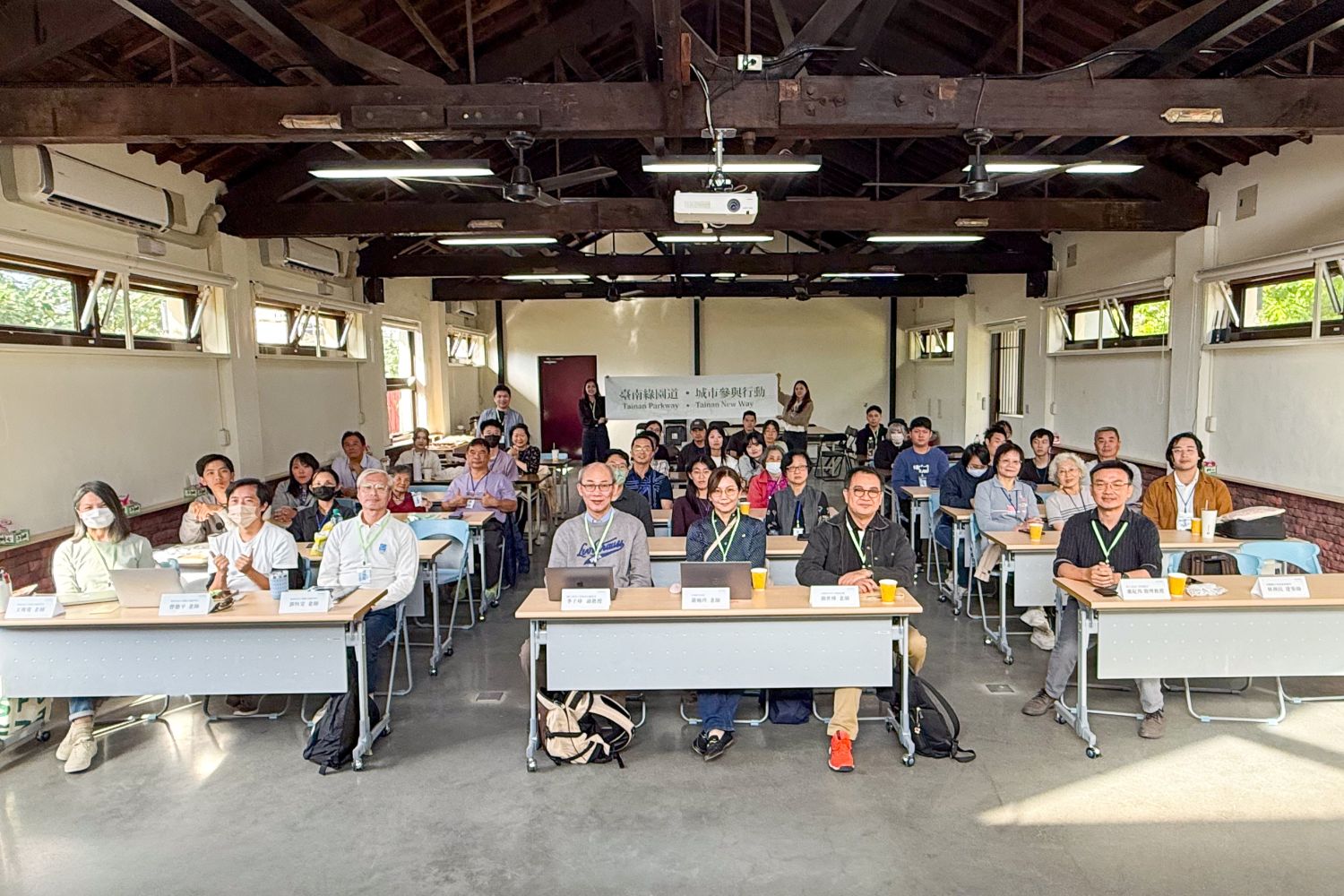SDG11
NCKU collaborated with Kasama, Japan on a dynamic exhibition of light sculpture art and botanical displays
National Cheng Kung University (NCKU) subsidizes sustainable interdisciplinary integration projects to support the use of luminescent plant biotechnology for local revitalization. Luminescent plants represent a rare convergence of scientific technology and artistic design in agriculture worldwide. Professor Yen-Hsun Su and his research team from the Department of Materials Science at NCKU have been promoting the United Nations Sustainable Development Goals 3, 11, and 17. They have been collaborating with Dr. Zhen-Biao Yan and Dr. Sheng-Lung Tu from NCKU, as well as Professor Yi-Sheng Lai from NCCU and Professor Wei-Sheng Chen from the Department of Resources Engineering at NCKU, to implement luminescent plant technology in local revitalization efforts. Additionally, they have collaborated with Dr. Chao-Cheng Kuan from the Material and Chemical Laboratories of the Industrial Technology Research Institute and Professor Jyh-Ming Ting from the Department of Materials Science at NCKU to develop multicolor luminescent oxides. This interdisciplinary effort integrates the expertise of Dr. Wei-Hsien Chen from the Department of Resources Engineering at NCKU and Dr. Fang-Cheng Lin from the Research Center for Applied Sciences at Academia Sinica, focusing on luminescent plant technology as a medium for artistic expression and therapeutic intervention in theatrical settings. This collaboration aims to create unique visual art experiences and involves practical applications in the field, such as those led by Professor Shu-Mei Wang from the Department of Bio-Industrial Communication and Development at National Taiwan University (NTU).
The interdisciplinary research team from NCKU, in collaboration with Kasama, Japan, organized a dynamic exhibition of light sculpture art and botanical displays, which contributed to local revitalization efforts. This initiative was strongly supported by Chen Wen-Chi, the head of Yanshui District, and She Mei-Qing, the head of Zhulin Village. With assistance from district chiefs across the 37 districts of Tainan City, the 2023 "New Agriculture Light Sculpture Art Festival" was inaugurated during the spring break. The festival showcased luminescent plant biotechnology and aimed to establish a base for creative agriculture in Yanshui. The opening ceremony featured performances by the "Fucheng Zhenlexuan Hakka Octet," highlighting traditional Hakka music and promoting cultural integration. Over the course of the three-day event, approximately 1,400 visitors attended to witness the mesmerizing light sculpture art amidst a forest of luminescent plants, complemented by the artistic designs of floral, botanical, and light artisans.
Mr. Kino, the director of the Kasama Taiwan Office, expressed his delight in showcasing the collaboration between Kasama and Tainan's Yanshui district, which combined the beauty of seasonal flowers with dynamic and static exhibitions to promote local tourism and industry.
Chen Wen-Chi, the head of Yanshui District, has long been committed to local development and agricultural innovation. With support from NCKU, the National Science Council, the Council of Agriculture, and the Agriculture Bureau, as well as assistance from She Mei-Qing, luminescent plant biotechnology has been applied to promote local revitalization in Yanshui. The opening ceremony of the festival featured educational materials provided by the Kasama Taiwan Office, highlighting the concept of "three-life agriculture," which integrates production, living, and ecology. This initiative involved collaboration with local artisans, such as a glass art company from Tainan, and received support from companies like Ruhnyu Corporation to promote green energy. The success of this event exemplifies the potential for collaboration between local communities and industries, fostering the development of new agricultural technologies and providing opportunities for youth engagement and agricultural education.
Professor Shu-Mei Wang from NTU stated that the exhibition was led by Chen Wen-Chi, the head of Yanshui District, and Shu-Mei Wang, the head of Zhulin Village, who collaborated with local residents to organize the New Agriculture Light Sculpture Art Festival featuring luminescent plants. The aim was to create a luminescent forest and achieve the goal of zero carbon emissions. The reduction of carbon emissions by one day's worth of electricity consumption was emphasized, highlighting the potential of luminescent plant biotechnology to promote the development of the sixth industry in Taiwan's agriculture sector. This initiative aims to establish Taiwan as a leader in international green industries while addressing new areas of energy policy focused on carbon reduction. Luminescent plant biotechnology represents the emergence of a new industry, which, with support from academia, government, and industry, has thrived in Yanshui, Tainan.
Ms. Xiu-Fei Gu, chairperson of the Tainan City Government's Hakka Affairs Committee, who has long been committed to promoting Hakka culture, expressed her delight in collaborating with Professor Su from NCKU for this exhibition. Professor Su's team combines scientific technology with artistic design in agriculture, leading to new opportunities for local revitalization. This innovative approach aligns with the committee's efforts to reinterpret Hakka traditional culture and revitalize Hakka industries in Tainan. She hopes for more opportunities for public-private collaboration to achieve mutual prosperity.
Assistant Professor Wei-Qian Ma from the Graduate Institute of Art at NCKU stated that in today's high-pressure environment, stress often leaves people feeling lost. Luminescent plants can serve as artistic therapy and contribute to local revitalization efforts. Through collaboration with Professor Yen-Hsun Su's laboratory, they have bridged the gap between scientific research and artistic expression, reaching beyond the confines of academia to engage with farmers. This interdisciplinary approach not only benefits local communities but also fosters sustainable development at the local, national, and environmental levels. It aims to reconstruct societal care and concern while nurturing talent for local revitalization, thereby advancing Taiwan's sustainable development goals.
Professor Yen-Hsun Su highlighted the ongoing challenges facing Taiwan's agriculture sector, even after 35 years since the 1988 Farmer's Movement. With support from NCKU, the National Science Council, the Council of Agriculture, and local authorities, luminescent plant biotechnology has emerged as a solution to promote the sixth industry and revitalize local communities. This initiative aims to increase farmers' incomes and promote sustainable agriculture by integrating luminescent plant biotechnology with local revitalization efforts, fostering mutually beneficial relationships between agriculture and ecology. By creating an international green industry for Taiwan's agriculture sector and addressing carbon reduction policies, this initiative aims to share the stories of revitalization with a wider audience, even as tourists enjoy delicious chestnut delicacies during their travels to Japan.
The interdisciplinary research team from NCKU, in collaboration with Kasama, Japan, organized a dynamic exhibition of light sculpture art and botanical displays, which contributed to local revitalization efforts. This initiative was strongly supported by Chen Wen-Chi, the head of Yanshui District, and She Mei-Qing, the head of Zhulin Village. With assistance from district chiefs across the 37 districts of Tainan City, the 2023 "New Agriculture Light Sculpture Art Festival" was inaugurated during the spring break. The festival showcased luminescent plant biotechnology and aimed to establish a base for creative agriculture in Yanshui. The opening ceremony featured performances by the "Fucheng Zhenlexuan Hakka Octet," highlighting traditional Hakka music and promoting cultural integration. Over the course of the three-day event, approximately 1,400 visitors attended to witness the mesmerizing light sculpture art amidst a forest of luminescent plants, complemented by the artistic designs of floral, botanical, and light artisans.
Mr. Kino, the director of the Kasama Taiwan Office, expressed his delight in showcasing the collaboration between Kasama and Tainan's Yanshui district, which combined the beauty of seasonal flowers with dynamic and static exhibitions to promote local tourism and industry.
Chen Wen-Chi, the head of Yanshui District, has long been committed to local development and agricultural innovation. With support from NCKU, the National Science Council, the Council of Agriculture, and the Agriculture Bureau, as well as assistance from She Mei-Qing, luminescent plant biotechnology has been applied to promote local revitalization in Yanshui. The opening ceremony of the festival featured educational materials provided by the Kasama Taiwan Office, highlighting the concept of "three-life agriculture," which integrates production, living, and ecology. This initiative involved collaboration with local artisans, such as a glass art company from Tainan, and received support from companies like Ruhnyu Corporation to promote green energy. The success of this event exemplifies the potential for collaboration between local communities and industries, fostering the development of new agricultural technologies and providing opportunities for youth engagement and agricultural education.
Professor Shu-Mei Wang from NTU stated that the exhibition was led by Chen Wen-Chi, the head of Yanshui District, and Shu-Mei Wang, the head of Zhulin Village, who collaborated with local residents to organize the New Agriculture Light Sculpture Art Festival featuring luminescent plants. The aim was to create a luminescent forest and achieve the goal of zero carbon emissions. The reduction of carbon emissions by one day's worth of electricity consumption was emphasized, highlighting the potential of luminescent plant biotechnology to promote the development of the sixth industry in Taiwan's agriculture sector. This initiative aims to establish Taiwan as a leader in international green industries while addressing new areas of energy policy focused on carbon reduction. Luminescent plant biotechnology represents the emergence of a new industry, which, with support from academia, government, and industry, has thrived in Yanshui, Tainan.
Ms. Xiu-Fei Gu, chairperson of the Tainan City Government's Hakka Affairs Committee, who has long been committed to promoting Hakka culture, expressed her delight in collaborating with Professor Su from NCKU for this exhibition. Professor Su's team combines scientific technology with artistic design in agriculture, leading to new opportunities for local revitalization. This innovative approach aligns with the committee's efforts to reinterpret Hakka traditional culture and revitalize Hakka industries in Tainan. She hopes for more opportunities for public-private collaboration to achieve mutual prosperity.
Assistant Professor Wei-Qian Ma from the Graduate Institute of Art at NCKU stated that in today's high-pressure environment, stress often leaves people feeling lost. Luminescent plants can serve as artistic therapy and contribute to local revitalization efforts. Through collaboration with Professor Yen-Hsun Su's laboratory, they have bridged the gap between scientific research and artistic expression, reaching beyond the confines of academia to engage with farmers. This interdisciplinary approach not only benefits local communities but also fosters sustainable development at the local, national, and environmental levels. It aims to reconstruct societal care and concern while nurturing talent for local revitalization, thereby advancing Taiwan's sustainable development goals.
Professor Yen-Hsun Su highlighted the ongoing challenges facing Taiwan's agriculture sector, even after 35 years since the 1988 Farmer's Movement. With support from NCKU, the National Science Council, the Council of Agriculture, and local authorities, luminescent plant biotechnology has emerged as a solution to promote the sixth industry and revitalize local communities. This initiative aims to increase farmers' incomes and promote sustainable agriculture by integrating luminescent plant biotechnology with local revitalization efforts, fostering mutually beneficial relationships between agriculture and ecology. By creating an international green industry for Taiwan's agriculture sector and addressing carbon reduction policies, this initiative aims to share the stories of revitalization with a wider audience, even as tourists enjoy delicious chestnut delicacies during their travels to Japan.
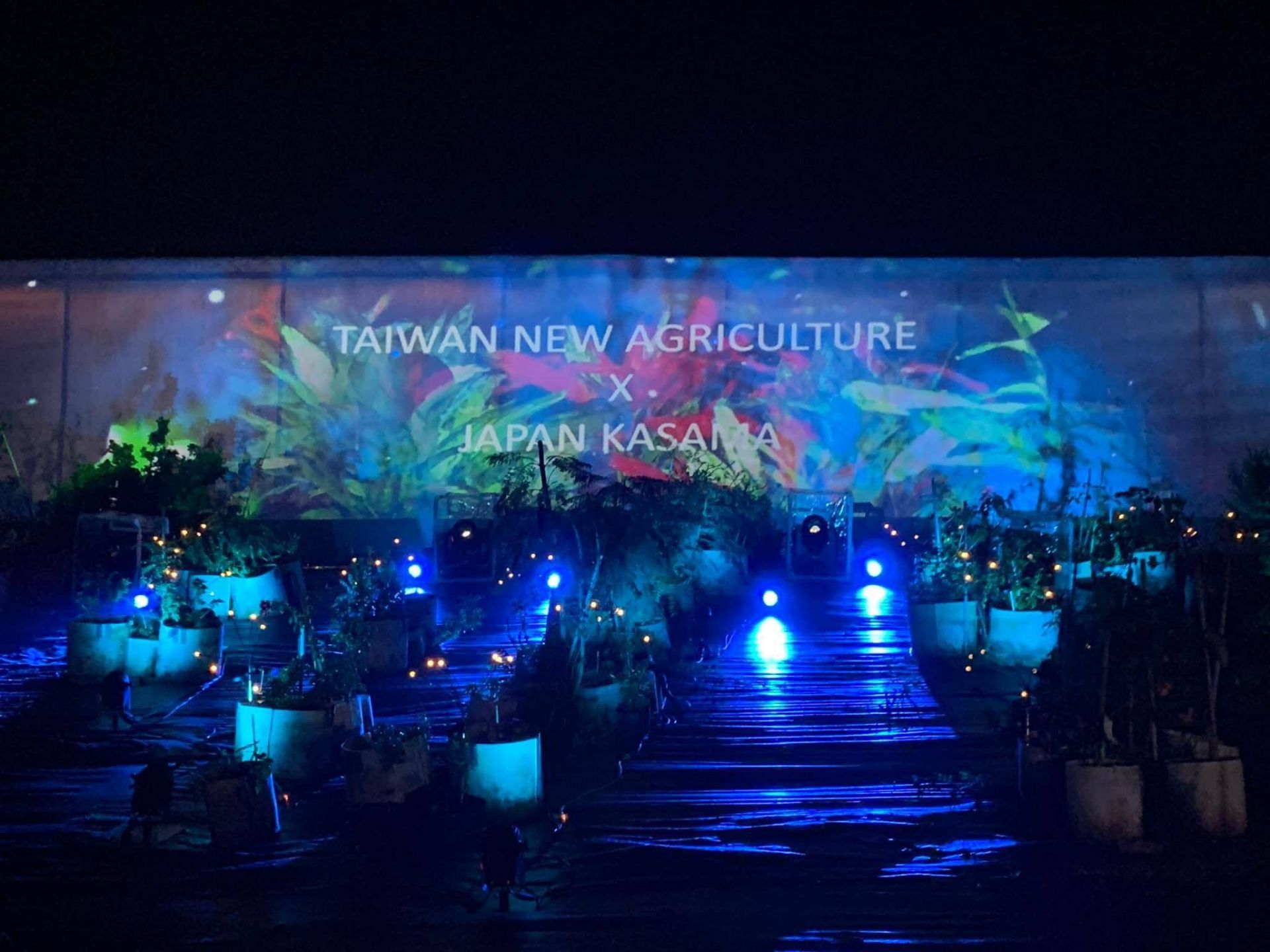
Dynamic art light sculpture of environmental theater light art featuring bioluminescent plants for local revitalization design.
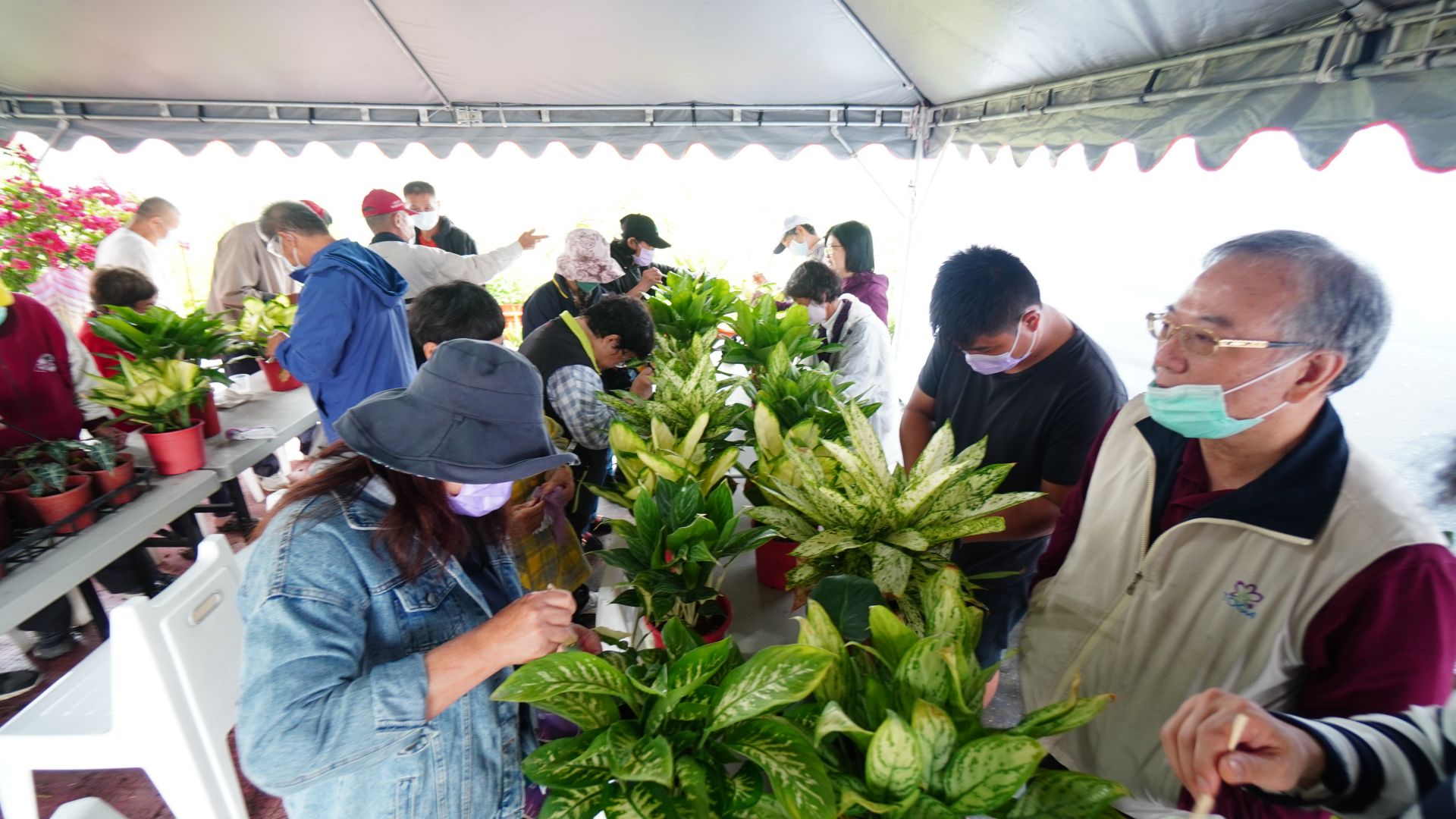
Despite heavy rain, residents of Yanshui enthusiastically participated in the local revitalization event.
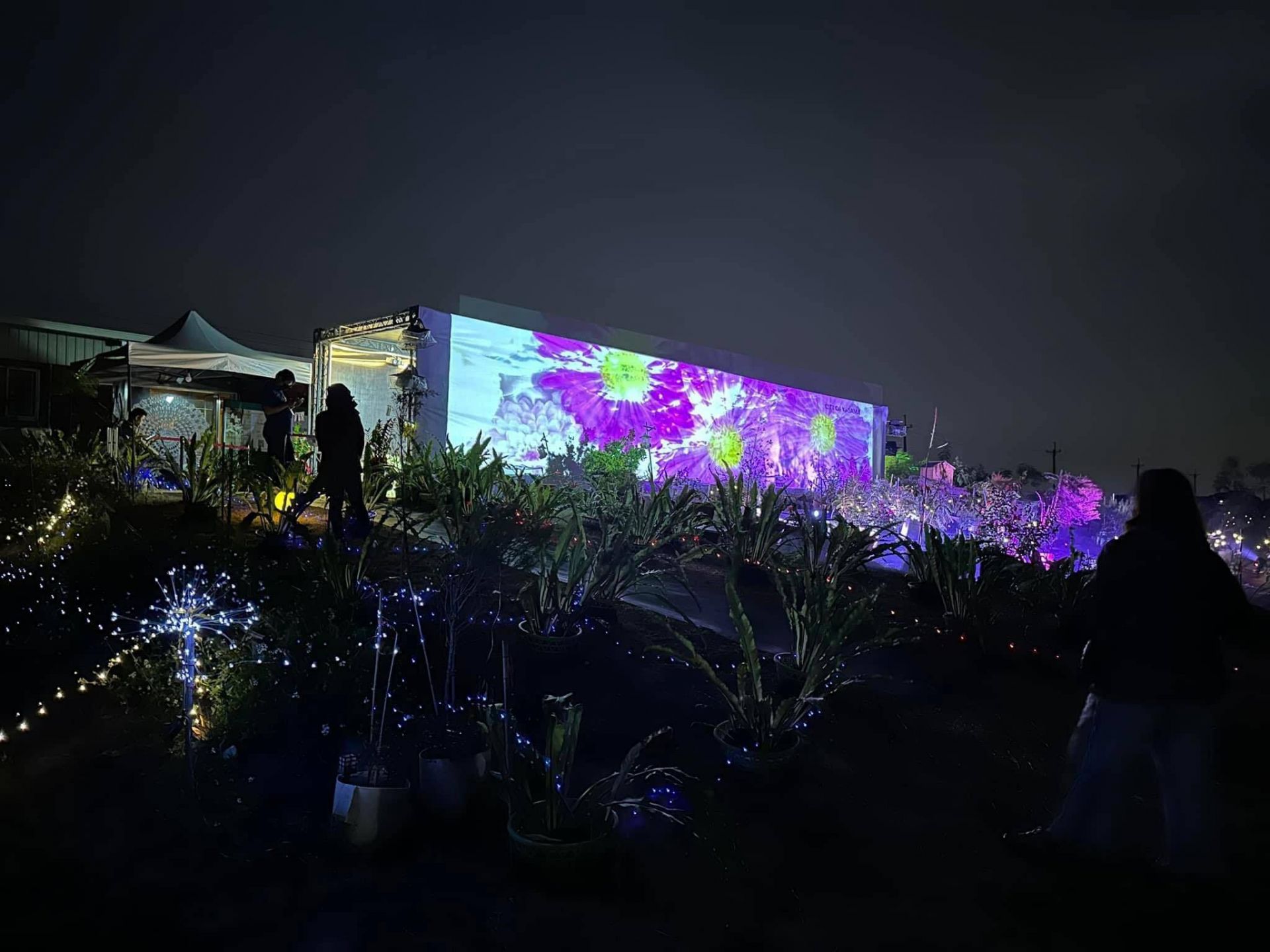
Japanese flower viewing, tourism, and three industries, through dynamic and static exhibitions, combined with Taiwan's local revitalization in Yanshui, create an international collaborative highlight of revitalization.
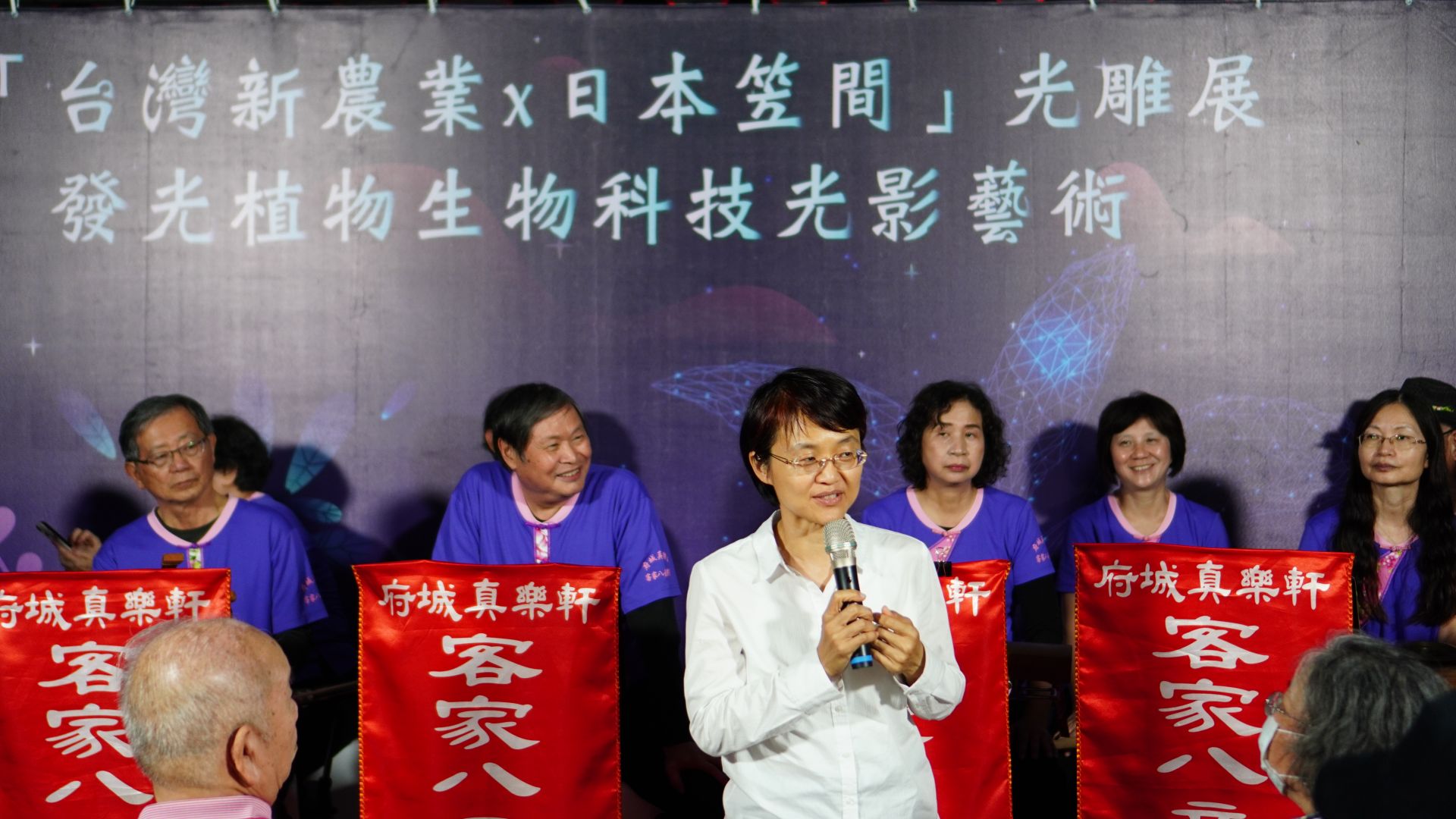
The Household Affairs Committee guided the FuCheng ZhenLe Xuan Hakka Octet Music Troupe to open with the traditional Taiwanese Hakka music "Da Kai Men"
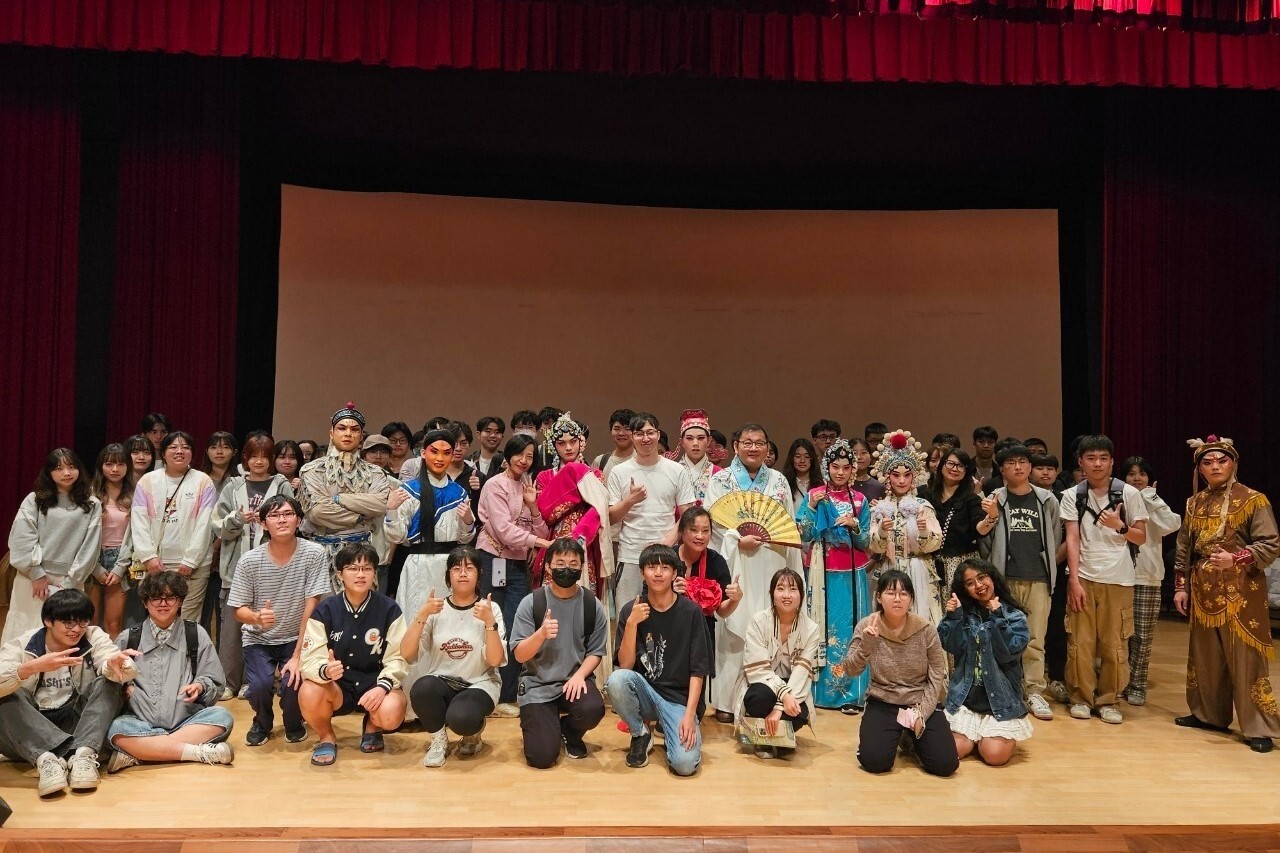
SDG11“Campus Encounter with the White Lady” Marked the Fuxing Peking Opera Troupe's Third Visit to NCKU
View more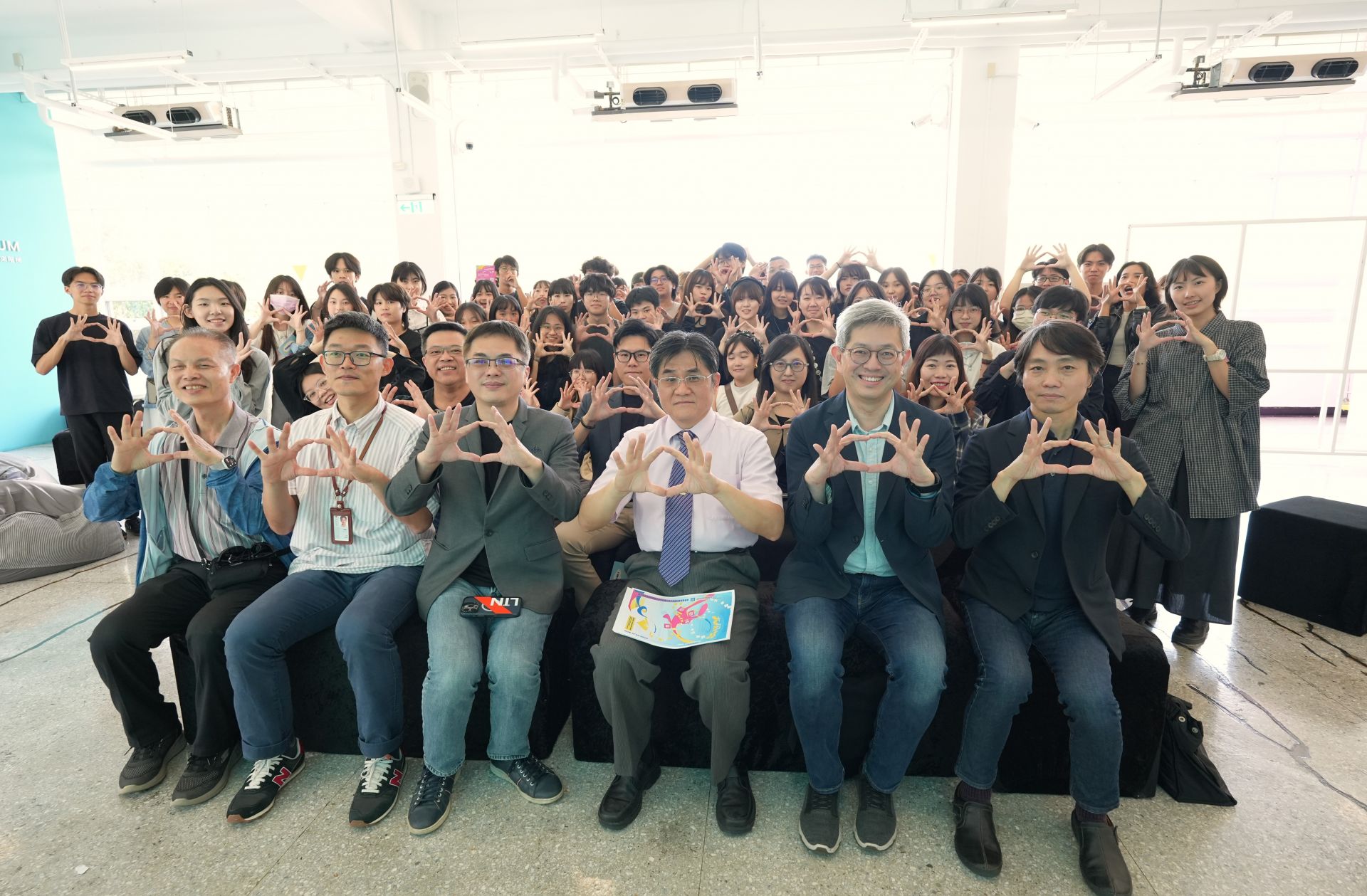
SDG11The Great Wind Blows: NCKU Industrial Design 114th Grad Show Highlights Sustainable Design
View more